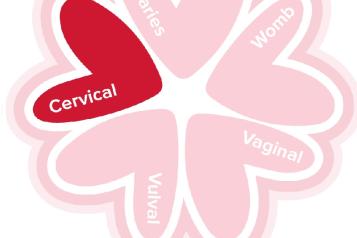Hot weather advice
Sunshine can be great and welcomed by many but it is important to stay sun-safe and look out for vulnerable people in the warmer weather. During heatwaves, more people than usual get seriously ill or die.

The main risks of hot weather are dehydration, overheating, heat exhaustion or heatstroke. These risks can also make pre-existing health conditions worse.
A heatwave can affect anyone, but the most vulnerable people are:
- older people – especially those over 75 and female
- those who live on their own or in a care home
- people who have a serious or long-term illness including heart or lung conditions, diabetes, kidney disease, Parkinson's disease or some mental health conditions
- people who are on multiple medicines that may make them more likely to be badly affected by hot weather
- those who may find it hard to keep cool – babies and the very young, people who stay in bed for long periods, those with drug or alcohol addictions or with Alzheimer's disease
- people who spend a lot of time outside or in hot places – those who live in a top-floor flat, the homeless or those whose jobs are outside
Watch out for signs of heat-related illness
If you or someone else feels unwell with a high temperature during hot weather, it may be heat exhaustion or heatstroke.
Find out about the signs of heat exhaustion and heatstroke, and when to get help
Top tips in the heat
- Drink lots of water – It is important to keep hydrated as you lose more fluid than you take in during hotter temperatures, this is also vital if you are doing any physical activity and when you are travelling long distances.
- Keep out of the sun – It is best to try to stay in the shade between the hours of 11 am to 3 pm, as this is when the sun is at its hottest.
- Wear sunscreen and sunglasses – Apply a sun cream of at least factor 15 that includes UVA protection and make sure your sunglasses have UV protection lenses to protect your eyes.
- Loose clothing – Wear light, loose-fitting cotton clothes along with a hat.
- Look out for others – Keep a check on those vulnerable to the effects of heat, especially the elderly, young children and babies and those who have a heart or respiratory condition such as asthma.
- Avoid strenuous activities - If you do want to carry out any physical activities, such as exercise or gardening, plan to do these during the morning or evening when it is cooler.
- Never leave babies, young children or animals in a parked vehicle – Temperatures can soar in a parked car very quickly, and children under the age of two are particularly at risk of getting heatstroke or heat exhaustion.
Water safety
- Unsupervised water – Don’t be tempted to take a dip in reservoirs, canals, lakes and rivers to cool down. There are hidden dangers lurking under the surface such as deep and cold water, debris and underwater currents which can result in drowning.
- Keep an eye out – Children should always be supervised when they are in or around water and make sure they are swimming within designated areas.
- Don’t be pushy – Never run, push or jump on others when in a swimming pool or at the beach and if you see someone in difficulty tell a lifeguard or call 999
- On the water – If out in a boat or canoe always wear a lifejacket.
Out and about
- Road safety – When out on a bike or scooter always wear a helmet, be aware of busy roads and cross roads safely.
- Dangerous playgrounds – Make sure you know where your children are going to ensure they aren’t playing in any hazardous areas such as railway tracks or abandoned buildings and always arrange a time for when they are going to be home.
- Stick together – Don’t walk away and leave friends to get home on their own.
- Drink alcohol sensibly – If you’re enjoying a tipple in the sunshine, be sure to know your limits and remember to drink plenty of water as the alcohol will make you even more dehydrated.


